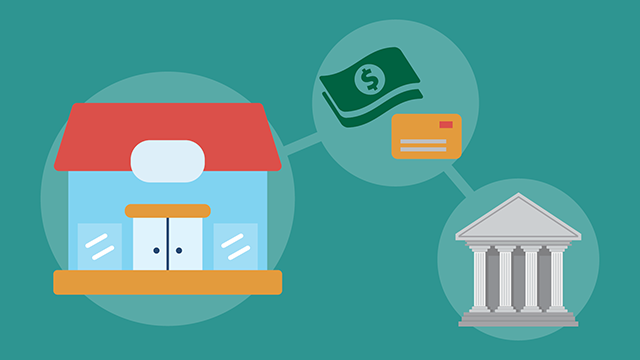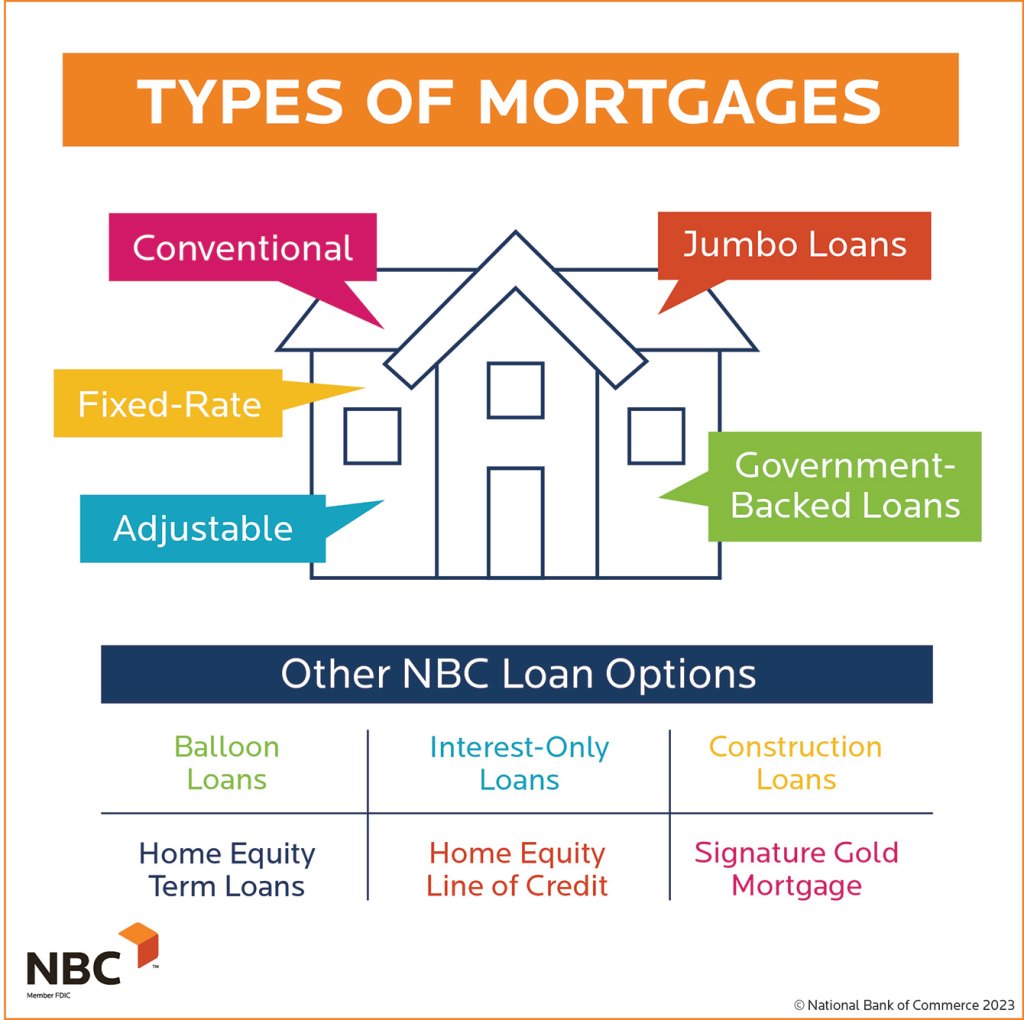A Comprehensive Guide to Home Loans: Provider and Options Explained
Charting the world of mortgage can be complex. Numerous choices exist, each with one-of-a-kind attributes and ramifications for possible home owners. Understanding the differences between traditional and government-backed lendings is essential. In addition, the application procedure involves meticulous documents and pre-approval actions that lots of forget. As debtors start on their home-buying journey, knowing exactly how to handle these duties properly can suggest the distinction in between economic stability and challenge. What techniques can encourage them on this course?
Understanding Home Loans: Types and Terminology
Recognizing the various sorts of home fundings and their associated terms is important for prospective home owners, as it equips them with the knowledge needed to make enlightened financial decisions. Home mortgage can be extensively categorized right into fixed-rate and adjustable-rate mortgages. Fixed-rate home mortgages preserve a constant rate of interest over the life of the finance, supplying stability in regular monthly payments. Fast Cash. Alternatively, variable-rate mortgages include rates of interest that may change after a preliminary set duration, possibly resulting in reduced initial repayments but raised future expenses
Added terminology is necessary for clearness. Principal describes the financing amount obtained, while rate of interest is the cost of loaning that amount. The term of the financing indicates its duration, commonly varying from 15 to thirty years. Recognizing these fundamental principles makes it possible for potential purchasers to browse the complicated landscape of home financing, guaranteeing they choose the best finance alternative that lines up with their economic scenario and lasting goals.
Traditional Loans vs. Government-Backed Loans
A substantial distinction in home funding exists in between conventional financings and government-backed lendings, each satisfying various debtor demands and situations. Conventional financings are not insured or guaranteed by the federal government and typically require higher credit report and deposits. They are frequently attracting customers with secure financial histories, as they may supply affordable rate of interest rates and terms.
On the other hand, government-backed car loans, such as FHA, VA, and USDA car loans, are developed to assist specific groups of borrowers, consisting of first-time homebuyers and professionals. Payday Loans. These car loans normally include reduced deposit needs and more flexible credit scores criteria, making them available to a more comprehensive variety of individuals
Ultimately, the option in between standard and government-backed financings rests on the customer's financial scenario, lasting goals, and eligibility, making it important to meticulously review both choices prior to making a choice.

The Function of Rate Of Interest Rates in Home Financing
Rates of interest play an important function in home financing, affecting consumers' choices in between set and variable price loans. The choice between these choices can substantially influence monthly settlements, influencing overall price. Understanding exactly how interest rates function is important for anybody maneuvering via the home mortgage procedure.
Repaired vs. Variable Prices
Homebuyers encounter an essential choice when choosing between taken care of and variable rates, as this selection considerably impacts the expense of financing over time. Fixed-rate home loans offer stability, locking in a rates of interest for the life of the car loan, which can be useful in a climbing rate of interest atmosphere. This predictability permits house owners to budget plan better. Conversely, variable-rate mortgages, or adjustable-rate home mortgages (ARMs), generally start with lower first rates that can rise and fall based on market problems. While this might cause lower first settlements, consumers encounter the risk of boosted rates in the future. Eventually, the selection in between variable and fixed prices depends upon specific economic scenarios, risk tolerance, and assumptions pertaining to future interest price trends.
Influence On Monthly Settlements
When assessing home funding choices, the influence of interest rates on month-to-month payments is a crucial variable to contemplate. Interest prices straight influence the total cost of borrowing, impacting just how much a debtor will pay monthly. A reduced passion price lead to smaller sized month-to-month payments, making homeownership more economical. On the other hand, greater prices can substantially raise regular monthly obligations, potentially straining a homeowner's budget. Furthermore, the financing term plays an essential role; longer terms may spread payments out yet can lead to paying even more passion with time. Understanding how interest prices connect with loan quantities and terms is necessary for debtors to make educated financial choices and choose a home loan that lines up with their long-lasting financial objectives.
Home Mortgage Brokers vs. Straight Lenders: Which Is Right for You?
When thinking about a mortgage, potential borrowers need to comprehend the distinct duties and duties of home loan brokers and direct loan providers. Each alternative provides its own benefits and disadvantages, which can significantly affect the general cost of funding. An informed try here choice calls for cautious analysis of these variables to establish the very best fit for specific needs.
Responsibilities and duties Specified
Steering the complexities of home funding calls for a clear understanding of the duties and obligations of home mortgage brokers and direct lending institutions. Home mortgage brokers serve as middlemans, connecting debtors with lending institutions. They examine a borrower's financial scenario, curate finance options, and guide customers through the application process, usually leveraging multiple lending institution connections to protect desirable terms. Conversely, direct lenders, such as banks and credit report unions, give fundings straight to customers. They manage the whole loan procedure, from application to financing, with a concentrate on their very own items. Each alternative offers distinctive avenues for acquiring funding, making it crucial for borrowers to evaluate their choices and demands when choosing between involving a home loan broker or collaborating with a direct lender.
Pros and Cons Comparison
Choosing in between a mortgage broker and a direct lender can considerably affect the home funding experience, as each option offers distinct advantages and downsides. Mortgage brokers work as intermediaries, providing access to numerous lending institutions and potentially better rates, while simplifying the finance process. They may bill costs and rely on commission frameworks that can influence their recommendations. On the various other hand, direct lenders improve the process by providing in-house fundings, which can result in quicker authorizations and fewer complications. Alternatively, they might have a restricted selection of items and less adaptability regarding rates. Ultimately, the choice hinges on individual choices, financial circumstances, and the wanted level of support throughout the home mortgage journey.
Cost Implications Assessed
While examining the cost ramifications of mortgage brokers versus straight lenders, possible house owners must take into consideration various variables that can considerably influence their general costs. Home loan brokers typically charge costs for their services, which can differ considerably, influencing the general lending cost. They typically have accessibility to a broader array of financing products and competitive prices, possibly conserving consumers money in find more info the long run. Alternatively, straight lenders may use an extra straightforward process with perhaps reduced upfront costs, but their finance options may be limited. It is necessary for home owners to compare rate of interest rates, fees, and terms from both brokers and loan providers, guaranteeing they make an enlightened choice that straightens with their monetary goals and demands.
The Mortgage Application Process: What to Expect

The mortgage application procedure can often really feel frightening for numerous candidates. It normally starts with collecting necessary paperwork, consisting of proof of earnings, credit rating, and personal recognition. Lenders use this information to evaluate the candidate's monetary security and establish car loan qualification.
Next off, applicants submit an official application, which may involve completing on the internet kinds or giving information in person. During this stage, lenders examine various elements, such as debt-to-income ratio and credit history, to pick finance terms.
When pre-approved, the lending institution will certainly carry out a detailed assessment of the residential property to establish its value aligns with the loan quantity. This phase may likewise consist of additional history checks.

After last authorizations and problems are fulfilled, the car loan is processed, bring about the closing stage. Comprehending each action empowers applicants, making the journey smoother and much more workable as they relocate towards homeownership.
Tips for Managing Your Home Lending Sensibly
Successfully navigating the mortgage application process is simply the start of an accountable monetary journey. Managing a home car loan requires focus to several key techniques. Debtors ought to develop a clear budget plan that fits month-to-month home loan payments, building taxes, and insurance coverage. On a regular basis examining this budget plan helps stop overspending and assurances prompt repayments.
Additionally, making added repayments when possible can substantially minimize the car loan principal and total interest paid in time. Debtors should also preserve open lines of communication with their lender, especially in times of monetary problem. This can bring about prospective remedies such as financing alterations or re-financing choices.
It is a good idea to keep an eye on credit score ratings routinely. A great credit history can provide chances for better funding terms in the future. Cash Advance. By adhering to these suggestions, home owners can navigate their lending duties successfully, assuring lasting financial health and stability
Regularly Asked Inquiries
What Are Closing Costs and How Are They Calculated?
Closing costs include costs related to wrapping up a home loan, consisting of evaluation, title insurance coverage, and finance origination costs. These costs commonly vary from 2% to 5% of the loan amount, varying based on place and loan provider.
Can I Get a Home Mortgage With Bad Credit Report?
Yes, people with negative debt can receive a home funding, though choices may be limited. Lenders typically call for greater deposits or rate of interest, and checking out government-backed loans might enhance chances of authorization.
What Is Mortgage Insurance and When Is It Required?
Mortgage insurance policy shields lenders versus default and is usually required when a customer makes a deposit of much less than 20%. It ensures that loan providers recuperate losses if the debtor falls short to settle the lending.
Just How Does Refinancing Job and When Should I Consider It?
Refinancing involves replacing a current home mortgage with a new one, generally to secure a reduced interest price or change loan terms. House owners need to think about refinancing when rates of interest drop significantly or their monetary situation boosts.
What Takes place if I Miss a Mortgage Settlement?
If a home mortgage payment is missed, the loan provider normally assesses late charges, reports the misbehavior to credit report bureaus, and may launch foreclosure procedures if this page payments proceed to be neglected, ultimately endangering the homeowner's building.
Fixed-rate mortgages preserve a constant passion price over the life of the loan, offering stability in monthly settlements. A substantial difference in home funding exists between traditional financings and government-backed financings, each catering to different consumer demands and situations. In comparison, government-backed financings, such as FHA, VA, and USDA finances, are developed to help specific groups of consumers, consisting of new property buyers and veterans. Passion rates play an important role in home financing, influencing borrowers' decisions in between set and variable price car loans. Fixed-rate home mortgages supply stability, securing in a rate of interest rate for the life of the financing, which can be advantageous in an increasing passion rate setting.